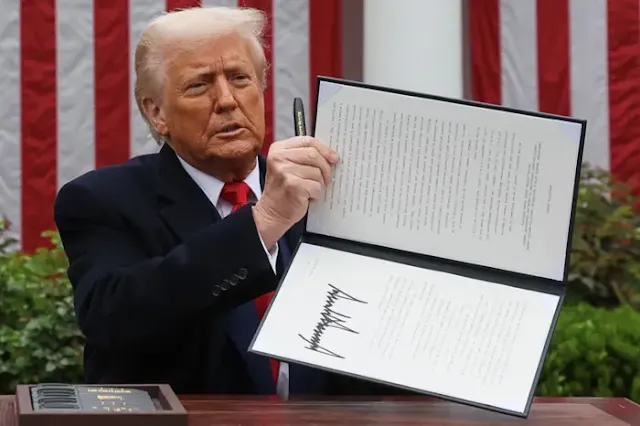ation: Liu Rui/GT -
DeepSeek | 深度求索
 Big buyer: A container ship leaving Qingdao, China. United Nation’s data show US exports to China rose 684% between 2001 and 2024.— AP
Big buyer: A container ship leaving Qingdao, China. United Nation’s data show US exports to China rose 684% between 2001 and 2024.— APBEIJING: China has called on the United States to remove unilateral tariffs as quickly as possible and work with it in the spirit of mutual respect, peaceful coexistence and win-win cooperation, in order to address respective concerns through dialogue and consultations on an equal footing, the Commerce Ministry says.
Chinese officials said on Wednesday that should Washington further intensify tariffs and restrictive measures against China, Beijing has the “firm will and abundant means” to fight until the end.
Their comments came after the State Council Information Office released on Wednesday a white paper titled China’s Position on Some Issues Concerning China-US Economic and Trade Relations, which noted that the recent US move of using tariffs as a coercive tool is a grave mistake and further exposes the typical unilateralist and bullying nature of the US government.
Since US President Donald Trump took office in late January, Washington has repeatedly imposed additional tariffs on China, and the tax rate on Chinese imports has now reached over 120%.
Noting that these actions could have a severe impact on China-US economic and trade relations, the white paper emphasised that the key is to respect each other’s core interests and major concerns and find proper solutions through dialogue and consultation.
The essence of China-US economic and trade relations is one of mutual benefit and win-win cooperation, despite the inevitable differences and friction that arise between the two countries due to their different stages of development and distinct economic systems, according to the document.
Trade data from the United Nations shows that the value of US goods exported to China reached US$143.55bil last year, up 648.4% compared with the US$19.18bil recorded in 2001.
The growth in US exports to China has far outpaced the 183.1% increase in overall US exports during the same period.
Detailing the white paper, a Commerce Ministry official said, “With firm will and abundant means, China will resolutely take countermeasures and fight until the end if the United States insists on further escalating economic and trade-restrictive measures.”
There is no winner in a trade war, and China does not want a trade war, the official emphasised, adding that the Chinese government “will by no means stand idle when the legitimate rights and interests of its people are being hurt and deprived”.
The official said that it is a typical act of unilateralism, protectionism and economic bullying for the United States to take tariffs as a weapon of exerting maximum pressure and pursuing self-interest.
Under the guise of pursuing “reciprocity” and “fairness”, the United States is engaging in zero-sum games and, in essence, seeking “America First” and “American exceptionalism”, the official said.
The United States is exploiting tariffs to subvert the existing international economic and trade order, prioritising US interests above the global common good, and sacrificing the legitimate interests of countries worldwide to serve its own hegemonic agenda, he added.
Noting that the United States is also deliberately severing the well-established global industrial and supply chains and breaking market-oriented free trade rules, the official said these practices seriously interrupt the economic development of countries around the globe and affect the long-term stable growth of the world economy.
Lin Jian, a spokesman for the Foreign Ministry, said at a daily news conference on Wednesday that “if the United States disregards the interests of the two countries and the international community and stubbornly persists in the tariff war and trade war, China stands ready to fight to the end”.
Cui Fan, a professor of international trade at the University of International Business and Economics in Beijing, said, “A trade war, for sure, produces no winner, but the United States is destined to suffer greater losses than others.”
On Tuesday, Goldman Sachs raised the odds of a recession in the United States to 45%, just a week after it said the odds were at 35%, as fears of an impending trade war increased.
It also revised its forecast for this year’s gross domestic product growth in the United States to 1.3%, down from 1.5% and cautioned about the possibility of a bear market.
Cui said the US tariff hikes will estrange allies, disrupt market dynamics, and provoke retaliatory actions that will reverberate throughout supply chains and hit US consumers hard.
More importantly, the measures fail to provide a clear path for the United States to regain its competitive edge in key industries, he added.
Navin Girishankar, president of the Economic Security and Technology Department at the Centre for Strategic and International Studies, said, “You can’t fight a trade war and then expect to win a tech war.”
Highlighting industries such as semiconductors, artificial intelligence and clean energy that largely rely on international collaboration, Girishankar said that tariffs would increase costs and reduce efficiency, eroding the ability of the United States bto compete in such sectors. — China Daily/ANN
Related posts:



